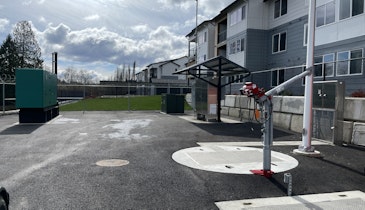Interested in Education/Training?
Get Education/Training articles, news and videos right in your inbox! Sign up now.
Education/Training + Get AlertsProperly designed septic systems satisfy the state’s antidegradation requirements for water quality, according to a new law in Pennsylvania. Pushed by homebuilders in response to a 2011 decision by the state’s Environmental Hearing Board, the new law removes a hurdle that slowed or prevented development in areas without public sewers, especially in high-quality or exceptional value watersheds.
The Pennsylvania Department of Environmental Protection argued that its requirement for a 10-acre minimum for any lot developed with onsite sewage in high-quality or exceptional value watersheds was needed to protect water from nitrates. Opponents said the policy would have depleted property values and made construction much more difficult and expensive by requiring extensive studies and the use of specialized septic systems.
They also argued that the previous regulations applied to areas with low nitrate levels in rivers and streams, but did not apply to other areas that already had nitrate-impaired waters.
The law became effective in July, though it is possible that challenges could be filed claiming it violates federal requirements.
RHODE ISLAND
Rhode Island has a new plan to prevent conflicting rules on environmental protection. Legislation signed by Gov. Lincoln Chafee calls for a single statewide standard for wetlands protection, septic systems and coastal conservation.
Currently local governments can set stricter rules and different aspects are regulated by different state departments. Supporters of a single standard say current rules make it confusing for businesses and property owners looking to develop land or operate septic systems, and that the changes will help improve the state’s business climate.
The new law creates a task force of state and local officials, scientists and business owners that will recommend statewide regulations by Dec. 31, 2014. Legislation based on the report is supposed to be introduced in early 2015.
ILLINOIS
Peoria County is working to revamp and tighten its regulations for septic systems. Among the proposed changes are more inspections, the ability to include room for a backup system on the property and a requirement to keep treated effluent underground.
A dozen people challenged the proposal earlier this year, saying the measure is too far-reaching in some areas, incomplete in others and was written without public input. Home builders, real estate agents, septic system contractors, environmentalists, public health advocates and others are examining the changes.





